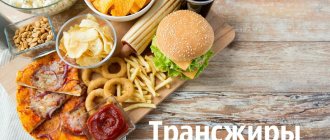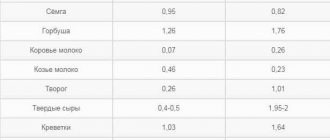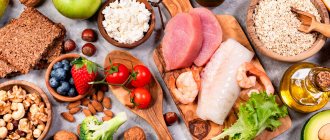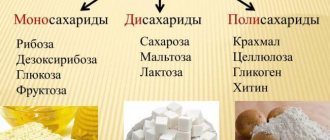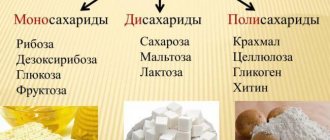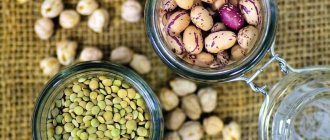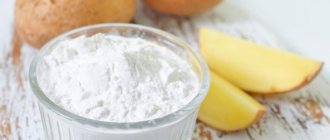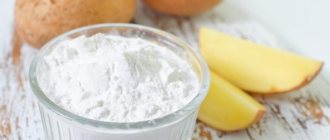July 17, 2012
Traditionally, fats are considered an unhealthy food. Let's look at why the term "good" fats is not an oxymoron.
Traditionally, fats are considered an unhealthy food. They are usually blamed for almost all diseases, from cardiovascular diseases to diabetes. However, there are different types of fats: good, bad and very bad. All of them have different effects on human health. Let's look at why the term "good" fats is not an oxymoron.
Deceiving food
There is also fat in doctor's sausage, but due to the fine grinding of the minced meat it is difficult to notice. Learn more about where to look for hidden fat and added sugar.
Good fats: unsaturated
Unsaturated fats are divided into mono- and polyunsaturated. Both of these types lower
blood cholesterol levels. Thus, they fight diseases caused by excess fat in the diet.
Monounsaturated fats are considered the healthiest
.
They reduce the level of “bad” cholesterol, which accumulates in blood vessels and clogs them. In addition, monounsaturated fats increase the level of “good” cholesterol, which cleanses blood vessels. Polyunsaturated fats
are an excellent source of
Omega-3
.
The human body is not capable of producing them, so you can only get Omega-3 fatty acids from food
. They are rich in fatty sea fish, nuts, seeds and oils. They are also found in dark green leafy vegetables, flaxseed oil and other unrefined oils. These acids not only reduce the content of “bad” cholesterol in the blood, but also normalize blood pressure, fight inflammation and protect the brain from neurodegenerative changes.
Menu examples
Double milk
Double milk has twice the calories and protein of skim milk. To prepare “double milk” and later add it to dishes:
- Mix 1 liter of skim milk with 1 pack of skim milk powder.
- Shake thoroughly and store in the refrigerator.
Menu example No. 1
Breakfast
- semolina porridge with skim or double milk;
- Boost Breeze® or Ensure Clear™ drink;
- toast with jelly fried in a dry frying pan;
- half and half coffee with Half and Half skim product or skim milk.
Dinner
- no-fat black beans with a side of white rice, low-fat salsa and low-fat Greek yogurt;
- Carnation Breakfast Essentials® powder with added skim or double milk;
- fresh pineapple.
Dinner
- green salad with low-fat dressing;
- low-fat spaghetti with low-fat tomato sauce;
- green beans cooked in low-fat broth;
- toasted low-fat bread seasoned with garlic powder;
- fruit juice;
- biscuit topped with low-fat frozen yogurt and maple syrup.
Snack
- low-fat salted pretzels;
- double milk with low fat chocolate syrup.
Menu example No. 2
Breakfast
- Eggbeaters® egg replacer with low-fat salsa or ketchup;
- BlueBran VitaMuffin™ with strawberry jam;
- fresh orange;
- tea with lemon and honey.
Dinner
- low-fat cottage cheese with fruit;
- Zwieback crackers with apricot jam;
- Strawberry Carnation Breakfast Essentials® Strawberry Flavor Powder with skim or double milk.
Dinner
- low-fat veggie burger with ketchup and mustard;
- baked sweet potatoes with marshmallow;
- homemade coleslaw (shredded cabbage, carrots, onions, low-fat mayonnaise and vinegar);
- low-fat ice cream with low-fat chocolate syrup;
- fruit juice.
Snack
- low fat yogurt.
to come back to the beginning
Don't "good" fats make you fat?
All vegetable oils are a combination of polyunsaturated and monounsaturated fatty acids in varying proportions.
Olive oil is the richest in monounsaturated fatty acids. However, do not forget that any fat in terms of caloric content remains ordinary fat. Therefore, labels on vegetable oil bottles that advertise the product as “light” imply its purity or taste, not its reduced fat content.
All vegetable oils
are 100 percent fat
. This means that a tablespoon of the product contains about 120 kcal. Such a spoon on a large salad bowl will make the dish even healthier. While vegetables drowned even in extra virgin olive oil will be higher in calories and more useless than dessert.
Weight loss
Most studies show that low-carb diets may be more effective for rapid weight loss than low-fat diets (, ).
According to an older 6-month study of 132 obese people, those on a low-carb diet lost 3 times more weight than those on a low-fat, calorie-restricted diet ().
In a small 12-week study, overweight teens on a low-carb diet lost an average of 21.8 pounds (9.9 kg), compared with 9 pounds (4.1 kg) for those on a low-fat diet ( ).
A two-year study of 322 obese people on low-fat, low-carb and Mediterranean diets produced exactly the same results. The low-carb group lost 10.4 pounds (4.7 kg), the low-fat group lost 6.4 pounds (2.9 kg), and the Mediterranean group lost 9.7 pounds (4. 4 kg) ().
However, other studies suggest that low-carb and low-fat diets may be equally effective in the long term.
According to a review of 17 studies, participants lost significantly more weight on a low-carb diet than on a low-fat diet. Although the low-carb diet was still more effective after 12 months, the difference between the two gradually decreased over time ().
Additionally, a two-year study of 61 people with diabetes found that low-carbohydrate, low-fat diets resulted in similar weight changes ().
A large meta-analysis of 48 studies also found that low-fat and low-carb diets resulted in similar weight loss, and noted that finding a diet that you can stick to may be the most important factor for successful weight management ().
Bad fats: saturated
Saturated fats are found in animal products - mainly meat and milk. They remain solid at room temperature.
Scientists rightly blame this type of fat for increasing the level of “bad” cholesterol in the blood. Therefore, experts recommend replacing some of these fats with unsaturated ones. Important: you don't need to completely give up saturated fats
. They contain vitamins. And stearic acid is even capable of being converted in the body into oleic acid, a monounsaturated fatty acid. Nutritionists recommend excluding from your diet only fatty pork and processed meat products that contain large amounts of hidden fat: sausages, sausages, and processed foods. Choose fresh meat and poultry, trim off excess fat and do not use oil when cooking them.
Blood Sugar Level
Low blood sugar can increase hunger and cause serious side effects such as shakiness, fatigue, and unintended weight changes ().
Limiting carbohydrate intake is one strategy to help control blood sugar levels ().
One study of 56 people with type 2 diabetes found that a low-carb diet was more effective at controlling blood sugar, increasing weight loss, and reducing insulin requirements compared to a low-fat diet ().
Another small study of 31 people comparing the effects of both diets found that only the low-carb diet reduced circulating insulin levels, resulting in increased insulin sensitivity ().
Increased insulin sensitivity can improve your body's ability to transport sugar from the bloodstream into your cells, leading to increased blood sugar control ().
However, although a three-month study of 102 people with diabetes found that a low-carb diet was more effective for weight loss than a low-fat diet, there was no significant difference in blood sugar levels ().
Thus, more research is needed on the effects of low-carbohydrate, low-fat diets on blood sugar.
Conclusion:
Research shows that low-carb diets are more effective for short-term weight loss than low-fat diets, and that they can lead to greater reductions in body fat and hunger.
Worst Fats: Trans Fats
Trans fats are also known by another name - hydrogenated fats
.
They are obtained through a hydrogenation process that converts liquid vegetable oils into solid fats. This allows you to replace butter or pure animal fat with cheaper alternatives
. Scientists believe that trans fats are much more harmful than saturated fats. Because they not only increase the level of “bad” cholesterol, but also reduce the content of “good” cholesterol. Trans fats can be hidden in all types of processed foods, from French fries to regular cookies. This is not surprising: they are cheaper, store and transport better, and behave more predictably during the cooking process than their animal counterparts.
20 facts about healthy eating
Fats make up the membranes of nerve fibers, they are part of the structure of the cell wall, and are also necessary for cell division and the synthesis of important hormones. You can’t completely eliminate fats – that’s a fact.
Hunger and Appetite
Research shows that low-carb, high-protein diets reduce hunger and improve mood compared to low-fat diets, potentially making them easier to maintain in the long term (, ).
For example, one study of 148 people associated a low-fat diet with a greater reduction in levels of peptide YY—a hormone that reduces appetite and promotes satiety—than a low-carb diet ().
This may be due to the filling effect of proteins and fats. Both of these macronutrients slow down stomach emptying to keep you feeling full longer (,).
Protein and fat have also been shown to influence several hormones that control hunger and appetite.
In a small study, a high-protein, high-fat meal increased levels of the satiety hormone, glucagon-like peptide 1 (GLP-1), and decreased levels of the hunger hormone ghrelin, more than a high-carbohydrate meal ().
How to make friends with fats?
The human body needs fats. They are a source of energy, a necessary substance for the normal functioning of cells, the nervous system, and a prerequisite for the absorption of certain vitamins. In addition, fats help maintain healthy hair and skin and even protect the body from cold. However, experts recommend limiting your fat intake to 30 to 35 percent
of your daily calorie intake. These values should not fall below 20 percent. In addition, most of the fats should be unsaturated – that is, liquid oils. It is better to minimize the fat content of dairy products by avoiding regular consumption of too fatty and salty hard cheeses. In addition, nutritionists recommend eating no more than one serving of meat or poultry the size of a playing card per day. But you shouldn’t limit yourself when it comes to fish consumption. A healthy diet should include at least two servings of fish per week. It’s better to say goodbye to fast food and other processed foods altogether – food at home turns out no worse.
Where can you buy nutritional supplements?
You can buy nutritional supplements at your local market or pharmacy. You can also order these products online and have them delivered to your home.
Below is a list of companies from which you can order dietary supplements.
Abbott Nutrition 800-258-7677 www.abbottstore.com
Carnation 800-289-7313 www.carnationbreakfastessentials.com
Nestlé 800-422-ASK2 (800-422-2752) www.nestlehealthscience.us
to come back to the beginning
